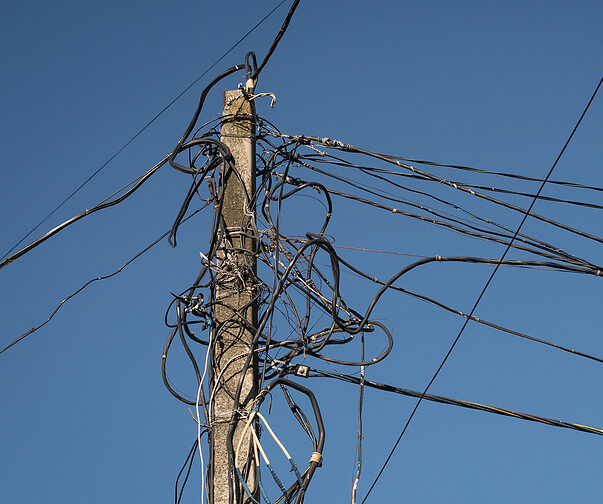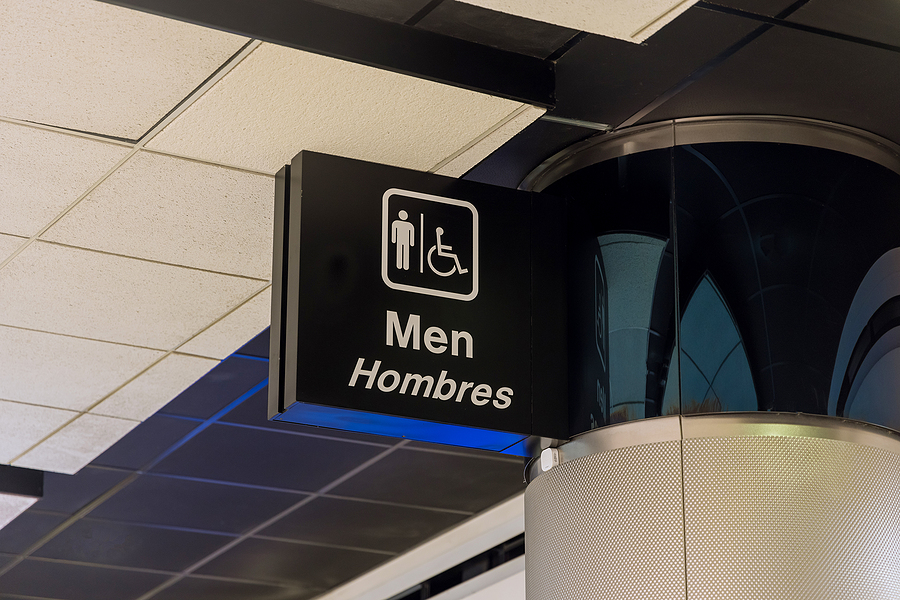DelVal’s Aging Infrastructure at in the Spotlight at Delco Chamber Event

You don’t think twice about turning on the tap to get a drink of water or flipping a switch to turn on the lights. But the aging utility system in the Delaware Valley needs constant updates to keep what people take for granted running.
And area companies are stepping up to modernize, rebuild, and improve their infrastructure. That was the theme of a Delaware County Chamber of Commerce breakfast meeting Friday at the Radnor Hotel hosted by chamber President Trish McFarland.
The Philadelphia International Airport is developing a new master plan and, in the coming years, will be rebuilt while remaining in its current footprint, said CEO Atif Saeed.
“For all practical matters, it needs to be rebuilt,” said Saeed. Money for the improvements will come from the airlines and government grants. “It will be a large project. It will be in the billions.”

(From left) Christopher Franklin, Essential chairman and CEO; Mike Innocenzo, PECO president and CEO; Philadelphia International Airport CEO Atif Saeed; Energy Transfer vice president for public affairs Joe McGinn, and Trish McFarland, Delaware County Chamber of Commerce president.
“Two-thirds of the land is in Delaware County,’ he said. “In 2017, a study revealed $53 billion in goods were being transported to our catchment area, and only 9 percent was coming to our (airport). Everything else was going to New York and D.C…Blueberries were flown in from South America and would go to New York and be trucked a mile away from where we were. It’s a huge opportunity.”
They are beefing up the cargo area and services “with the end goal so we can capture more of the cargo. Most of that is going to happen in Delaware County…It will be $1.4 billion of investment expected to generate 6,000 permanent jobs and $1 billion economic impact on an ongoing basis in addition to all the residual impact on businesses in the area…We will need to make some adjustments to I-95 because this will create a lot of traffic that will not be consumed by the roadway system right now.”
“It’s all about the money,” he said. “The 1.4 billion needs to come from somewhere.” He was looking at bonds and private investments and said it “is by far the biggest challenge.”
Joe McGinn, vice president for public affairs and government relations for Energy Transfer, said his company stepped in to meet the area’s needs for natural gas, gasoline, and petroleum products as refineries closed.
“We move about a third of (those products) from a national perspective,” McGinn said. “We’re one of the largest pipeline and midstream companies in the U.S.”
“We’re also, through our history, we have the original refined products transportation system,” he added.
While many area refineries closed, the demand for gasoline and other fuels remained strong.
“How do you get those products here?” McGinn asked. “With our vast infrastructure, one of the things we were able to do is tie in with some of the refineries also in the U.S. Because the alternative is, are we going to get this from Europe or overseas, imported through the region, in the New Y ork Harbor or the Port of Philadelphia? Or can we get this produced domestically and get it here? So, we were able to tie our pipeline infrastructure into the mid-continent, Ohio, Indiana, etc., get that gasoline, and pull it through Pennsylvania to points all across the state.
“We invested billions of dollars in the pipeline infrastructure to bring it here,” he said. McGinn mentioned the Mariner East pipeline, which brings gas from the Marcellus Shale in western Pennsylvania to the area.
“It needed somewhere to go, but obviously, there wasn’t a direct tie to southeastern Pennsylvania,” he said. There is not only demand here but also a “great port.”
Closing the refinery in Marcus Hook, which took up about half its land, left a big hole in the borough’s budget, and the town struggled to make up the property tax revenue. But Energy Transfer’s pipeline project created hundreds of permanent jobs and thousands of construction jobs, he said.
McGinn said, “One of the things I’m proud about is…one of the things we’ve focused on at Energy Transfer and Sunoco is being involved with the local fire companies. It’s mostly volunteers, and they really struggle… We’ve given over $1 million in Pennsylvania in the last five years,” including $10,000 to Brookhaven and $60,000 to Marcus Hook.”
PECO President Mike Innocenzo said the company is creating new infrastructure to meet the needs of residents with the proliferation of electric vehicles and solar roof panels.
“We have an infrastructure that served this county for 140 years that has new demands on it,” said Innocenzo. “We’re doing a lot of upgrades to our system.”
He said it is converting its old system to build more capacity and storm-hardening it. On the natural gas side, it is replacing older pipes, which also helps prevent methane emissions.
He pointed out that the area electric grid narrowly averted brownouts during unusually cold weather last December.
“If we haven’t dug up your street, we’ll probably do it soon,” said Christopher Franklin, chairman and CEO of Essential (AQUA), eliciting chuckles. It tries to coordinate the work with other utilities and the townships. “Nobody wants to see a street dug up this year and again in three years.”
“Street work has continued to be one of our challenges,” he said. Even though Delaware County is the smallest county in Pennsylvania, there are 49 municipalities, “each with an individual responsible for setting fees. So we strategically do work. In some communities, we do the work because they’re welcoming, and in some, we defer a little bit…where people are driving costs.”
“It’s all 100 percent passed on to our customers, so we try to control these costs,” he said. “Long-term affordability of rates…Yes, we have massive infrastructure needs…one of the discussions is spending dollars like inside our family.” They have a safety net for those who can’t afford their water bill.
He also mentioned PFAS, forever chemicals that must be removed from the water by 2027 under a federal mandate of four parts per trillion. companies that produced them should be paying for the clean-up, he said.
And Franklin praised AQUA employees’ fast action, who quickly shut down an intake valve on the Delaware River to prevent a Bucks County company’s chemical spill from getting into the water supply in March.
“The Delaware County Chamber of Commerce has consistently advocated for appropriate support of critical infrastructure as part of the chamber’s legislative agenda,” said McFarland. Infrastructure, such as energy, water, and transit, is paramount to the economic vitality in our region, and the chamber is proud to support the companies who were featured in today’s event.”
Please follow DVJournal on social media: Twitter@DVJournal or Facebook.com/DelawareValleyJournal



